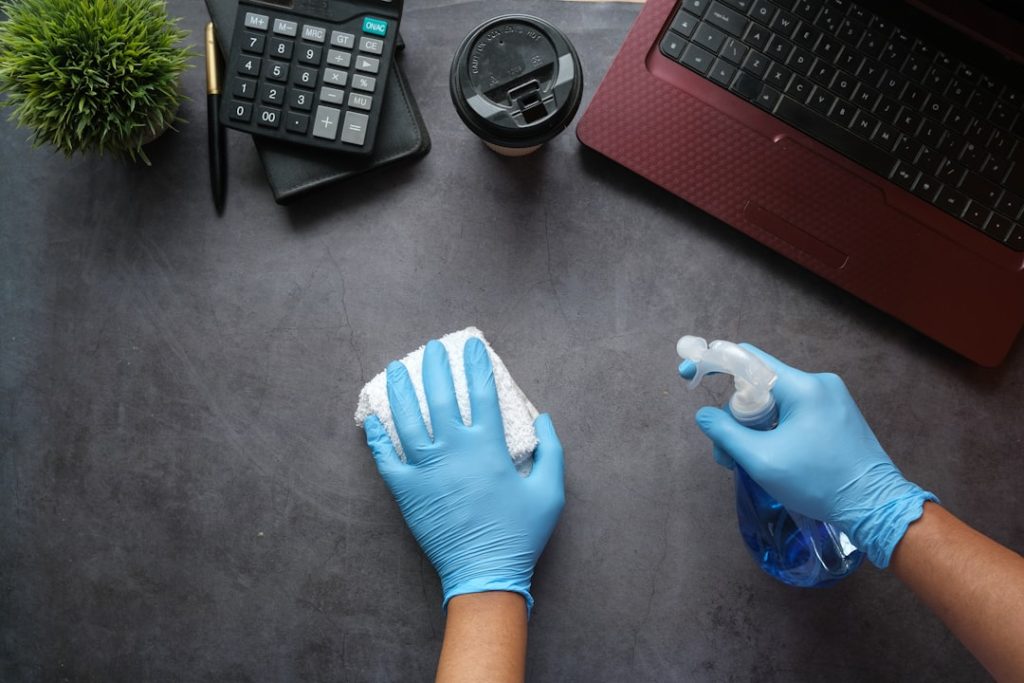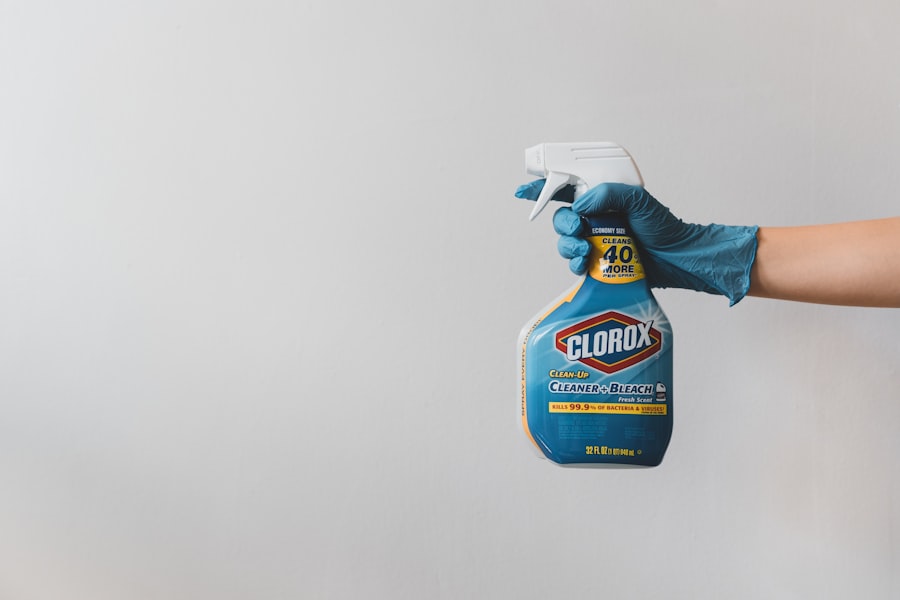Revolutionize Your Cleaning Routine with House Cleaning Oil

In the ever-evolving world of home maintenance, house cleaning oils have emerged as a powerful ally for those seeking to maintain a pristine living environment. These oils, derived from natural sources, offer a unique blend of cleaning efficacy and aromatic appeal, making them a popular choice among eco-conscious consumers. Unlike traditional cleaning agents that often contain harsh chemicals, house cleaning oils provide a gentler alternative that can effectively tackle dirt, grime, and stains while also promoting a healthier indoor atmosphere.
As more individuals become aware of the potential hazards associated with synthetic cleaners, the shift towards natural solutions like house cleaning oils is gaining momentum. The versatility of house cleaning oils is another compelling reason for their growing popularity. They can be used on a variety of surfaces, from wood and glass to fabrics and metals, making them an essential component of any cleaning arsenal.
Furthermore, the aromatic properties of these oils can transform mundane cleaning tasks into a sensory experience, infusing your home with delightful scents that uplift your mood. As we delve deeper into the benefits and applications of house cleaning oils, it becomes clear that they are not just a trend but a sustainable choice for maintaining cleanliness and comfort in our homes.
Key Takeaways
- House cleaning oil is a natural and effective alternative to chemical-based cleaning products, made from plant-based oils such as citrus, lavender, and eucalyptus.
- Using house cleaning oil can help reduce exposure to harmful chemicals, improve indoor air quality, and contribute to a more sustainable and eco-friendly cleaning routine.
- House cleaning oil can be used for various cleaning tasks, including surface cleaning, floor mopping, and even laundry, making it a versatile and cost-effective option for households.
- Different types of house cleaning oils have specific uses and benefits, such as lemon oil for degreasing and disinfecting, and tea tree oil for its antibacterial and antifungal properties.
- When choosing a house cleaning oil, consider factors such as scent preference, cleaning needs, and potential allergens, to ensure it is the right fit for your home and family.
Benefits of Using House Cleaning Oil
One of the most significant advantages of using house cleaning oils is their ability to provide a deep clean without the use of harmful chemicals. Many conventional cleaning products contain toxic substances that can irritate the skin, eyes, and respiratory system. In contrast, house cleaning oils are often derived from natural ingredients such as essential oils, which possess inherent antibacterial and antifungal properties.
This means that not only do they clean effectively, but they also contribute to a healthier living environment by reducing the presence of harmful pathogens. Additionally, house cleaning oils are known for their ability to nourish and protect surfaces. For instance, when used on wooden furniture or floors, these oils can penetrate the wood, providing moisture and preventing cracking or splitting.
This protective quality extends the lifespan of your furnishings and enhances their appearance. Moreover, many house cleaning oils leave behind a pleasant fragrance that lingers long after the cleaning is done, creating an inviting atmosphere in your home. The combination of effective cleaning and surface care makes house cleaning oils an invaluable addition to any household cleaning routine.
How to Use House Cleaning Oil in Your Cleaning Routine

Incorporating house cleaning oil into your cleaning routine is both simple and effective. To start, it’s essential to choose the right oil for your specific needs. For example, tea tree oil is renowned for its antibacterial properties and is ideal for disinfecting surfaces in kitchens and bathrooms.
On the other hand, lavender oil not only cleans but also provides a calming scent that can enhance relaxation in living spaces. Once you’ve selected your preferred oil, you can create a versatile cleaning solution by mixing a few drops with water in a spray bottle. This mixture can be used to wipe down countertops, tables, and other surfaces with ease.
Another effective method for using house cleaning oil is through the addition of a few drops to your regular mop water or laundry detergent. This not only boosts the cleaning power but also infuses your home with delightful fragrances during the cleaning process. For stubborn stains or grime, applying the oil directly to the affected area and allowing it to sit for a few minutes before wiping can yield impressive results.
By integrating house cleaning oils into your routine, you can elevate your cleaning experience while ensuring that your home remains a safe and inviting space.
Different Types of House Cleaning Oils and Their Uses
| Oil Type | Uses |
|---|---|
| Lemon Oil | Antibacterial, fresh scent, cuts through grease |
| Tea Tree Oil | Antifungal, antibacterial, natural disinfectant |
| Lavender Oil | Relaxing scent, antibacterial, natural insect repellent |
| Peppermint Oil | Antimicrobial, fresh scent, natural pest deterrent |
| Eucalyptus Oil | Antibacterial, deodorizing, natural antiseptic |
House cleaning oils come in various types, each with its unique properties and uses. Essential oils such as lemon, eucalyptus, and peppermint are popular choices due to their refreshing scents and natural antibacterial qualities. Lemon oil is particularly effective for cutting through grease and grime, making it an excellent choice for kitchen surfaces.
Eucalyptus oil not only cleans but also acts as a natural insect repellent, making it ideal for areas prone to pests. Meanwhile, peppermint oil offers invigorating properties that can uplift your spirits while providing effective cleaning power. In addition to essential oils, there are also carrier oils like olive oil and coconut oil that serve as excellent bases for homemade cleaning solutions.
Olive oil can be used to polish wooden furniture while providing nourishment to the wood. Coconut oil is known for its ability to remove sticky residues and can be particularly useful in kitchens or craft areas. By understanding the different types of house cleaning oils available and their specific uses, you can tailor your cleaning routine to suit your home’s unique needs.
Tips for Choosing the Right House Cleaning Oil for Your Home
Selecting the right house cleaning oil involves considering several factors to ensure you find the best fit for your household needs. First and foremost, it’s essential to assess any allergies or sensitivities among household members. Some individuals may react negatively to certain essential oils; therefore, opting for hypoallergenic options or conducting patch tests before widespread use is advisable.
Additionally, consider the specific surfaces you plan to clean; certain oils may be more suitable for particular materials than others. Another important aspect to consider is the scent profile of the oil. While some may prefer invigorating citrus scents like lemon or orange, others might gravitate towards calming fragrances such as lavender or chamomile.
It’s also worth noting that some oils have stronger antibacterial properties than others; for instance, tea tree oil is well-known for its disinfecting capabilities. By taking these factors into account when choosing house cleaning oils, you can create a personalized cleaning experience that aligns with your preferences while ensuring effective results.
Environmental and Health Benefits of House Cleaning Oil

The environmental benefits of using house cleaning oils cannot be overstated. Many conventional cleaners contribute to pollution through their chemical runoff and packaging waste. In contrast, house cleaning oils are often derived from renewable resources and come in eco-friendly packaging options.
By choosing natural alternatives, you are not only reducing your carbon footprint but also supporting sustainable practices that benefit our planet. Furthermore, many house cleaning oils are biodegradable, meaning they break down naturally without harming ecosystems. From a health perspective, using house cleaning oils significantly reduces exposure to harmful chemicals commonly found in traditional cleaners.
These chemicals can lead to various health issues over time, including respiratory problems and skin irritations. By opting for natural alternatives like house cleaning oils, you create a safer environment for yourself and your family. Additionally, many essential oils possess therapeutic properties that can enhance well-being; for example, inhaling lavender oil has been shown to promote relaxation and reduce stress levels.
Embracing house cleaning oils not only leads to cleaner homes but also fosters healthier lifestyles.
Embracing a Greener and More Effective Cleaning Routine with House Cleaning Oil
In conclusion, house cleaning oils represent a transformative approach to maintaining cleanliness in our homes while prioritizing health and environmental sustainability. Their natural composition offers numerous benefits over traditional cleaners, including effective disinfection without harmful chemicals and nourishing properties that protect surfaces from wear and tear. As we become increasingly aware of our impact on the planet and our well-being, integrating house cleaning oils into our routines becomes not just a choice but a responsibility.
For those looking for an efficient solution tailored to residential spaces, office environments, new construction sites, or Airbnb rentals, Cape May Cleaning Services stands out as an exceptional option. With their commitment to using eco-friendly products—including high-quality house cleaning oils—they ensure that every space is not only spotless but also safe for occupants. By choosing Cape May Cleaning Services, you embrace a greener approach to cleanliness while enjoying the peace of mind that comes from knowing your environment is being cared for by professionals who prioritize both effectiveness and sustainability.
For those interested in learning more about house cleaning techniques, particularly focusing on the use of cleaning oils, you might find the article at Cape May Cleaning Service quite insightful. It offers a comprehensive guide on how to effectively use cleaning oils to maintain different surfaces in your home. You can read more about these tips and tricks by visiting their website. Here’s a direct link to the article: Effective Use of Cleaning Oils in House Cleaning. This resource is perfect for anyone looking to enhance their cleaning routine with the use of oils.
FAQs
What is house cleaning oil?
House cleaning oil is a natural and eco-friendly alternative to chemical-based cleaning products. It is made from a combination of natural oils, such as citrus, eucalyptus, or tea tree oil, and is used to clean and polish various surfaces in the home.
How is house cleaning oil used?
House cleaning oil can be used to clean and polish a variety of surfaces, including wood, stainless steel, glass, and tile. It is typically applied with a soft cloth or sponge and then buffed to a shine.
What are the benefits of using house cleaning oil?
House cleaning oil is non-toxic, biodegradable, and safe for use around children and pets. It also leaves a pleasant, natural scent and can help to condition and protect surfaces from damage.
Can house cleaning oil be used on all surfaces?
House cleaning oil is safe for use on most surfaces, but it is always best to test a small, inconspicuous area first to ensure compatibility. It may not be suitable for use on certain types of stone or porous surfaces.
Where can I purchase house cleaning oil?
House cleaning oil can be found at natural health stores, eco-friendly retailers, and online. It is often sold in concentrated form and can be diluted with water for use.

